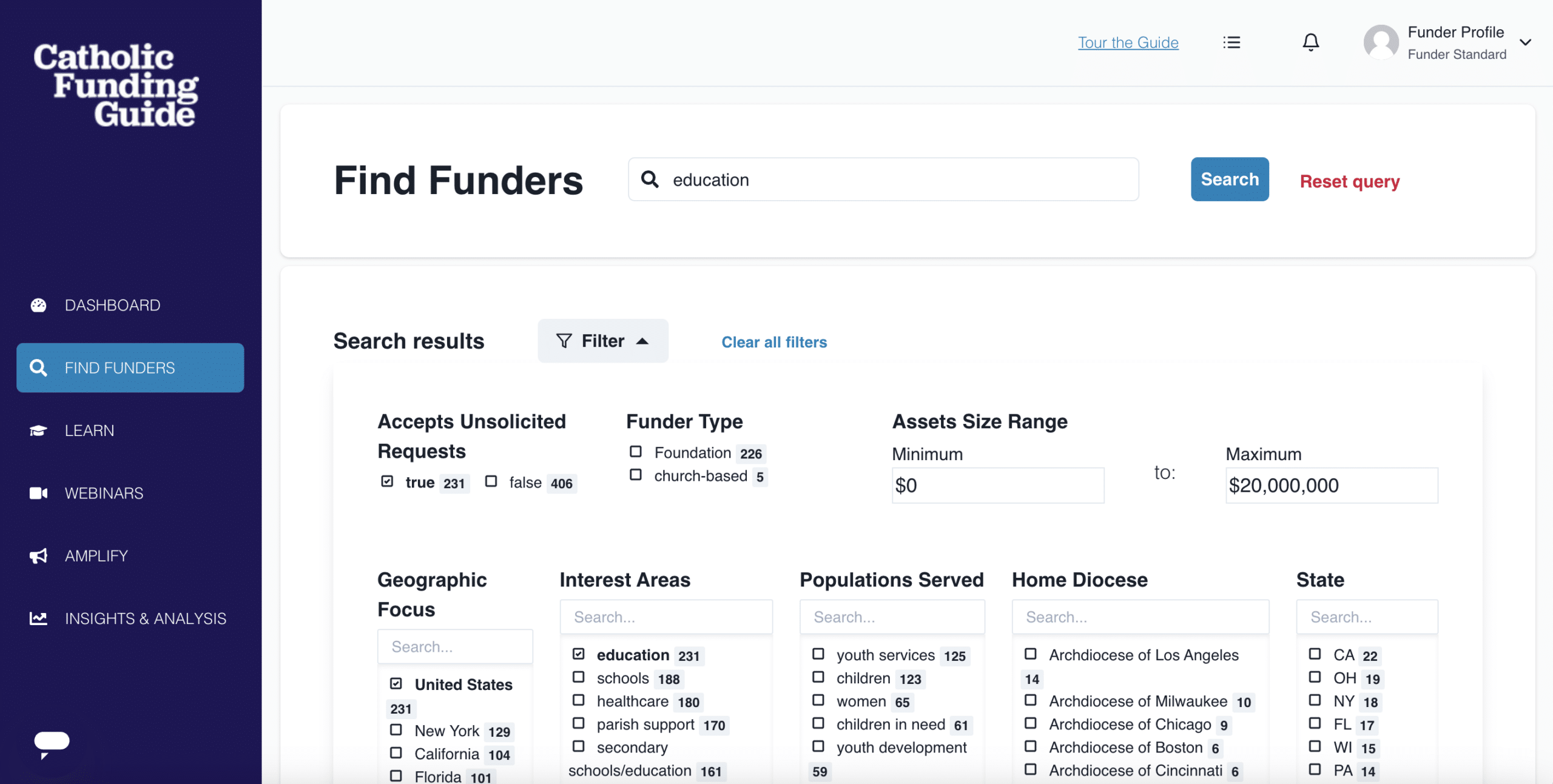The Shift in Grantmaking to Better Support Nonprofits
In recent years—largely in response to the pandemic—many funders revisited their approach to grantmaking, becoming more flexible and responsive to the needs of their immediate community. In essence, they transitioned to trust based philanthropy. What originally started as a form of crisis management has become a potentially effective new way to find your next grantee.
There never was a “one size fits all” approach to the grant application process, but a structured approach was the pre-COVID standard. As some foundations inched away from this, others were inspired to revisit their own funding approach, considering how they could fill new gaps and meet new needs in and beyond their circle of giving.
In a webinar hosted by the Catholic Funding Guide, two funders shared their thoughts on the shift.
“[After COVID], there was a shift in philanthropy to create more access and to make that [application process] less onerous.”
Christine Healey, President, Healey Education Foundation
“[W]e have shifted to a more trust-based model. Kind of like with our employees, you know, I never really didn’t think they were capable of working without having to be physically present, but they certainly proved the point in many instances.… So it’s the same thing with our grantees. All that trust, we built that before the pandemic, and then the pandemic gave us a chance to prove it.”
Joseph Womac, President, Specialty Family Foundation
If you are thinking about changing your own grant application process, how do you make that decision?
Key Considerations for Your Grant Application Process
The ideal application process for your foundation is highly contingent upon a variety of factors. For example, if you have a foundation that receives a large number of applications at any given time, you need a way to quickly identify best prospects. In this case, a highly stringent application process can be beneficial. On the other hand, a smaller foundation with fewer inquiries or a broad range of giving interests may be hindered by such a streamlined approach.
The way you give impacts your application process. If your giving is goal-oriented and often excludes unsolicited grants, a more open approach, without a formal application process, may be a good fit.
On the other hand, maybe your giving is centered around meeting needs within a specific community or cause. A structured grant application process pairs well with this model because it can help you more easily identify mission-aligned projects.
Pros & Cons: Formal vs Informal Grant Application Process
Should you have a formal or informal grant application process? Here are some pros and cons to be aware of in each scenario.
Formal Grant Application Process
Your foundation may already have a structured application process in place. This tends to be a good fit for organizations that need to efficiently identify mission-aligned causes.
Pros:
- Structure can help streamline and save time if you have a high number of applicants.
- With a structured process, you can quickly identify a grantee with mission alignment.
- Applicants may appreciate knowing what is expected of them and what to expect regarding each step of the review process.
Cons:
- You may miss out on giving opportunities. It’s important to review all the steps in your formal process to make sure it is targeted in a way that is most aligned with your goals. Otherwise, your process could unintentionally weed out relevant applicants who have mission alignment but don’t meet all the criteria.
- You may end up deterring applicants who would be a good fit for your mission. It can be very time consuming for applicants to prepare and apply for grants, especially today when understaffing at nonprofits is a prominent issue.
Informal Grant Application Process
If you have adopted a flexible giving model (or are thinking of doing so), a less structured process may be ideal.
Pros:
- A flexible or informal approach opens the doors for a broader range of applicants.
- This approach may be ideal for small foundations, foundations that are receiving irrelevant applications, or foundations with highly localized work.
- This approach is not yet widespread, so it can be a way for you to stand out.
Cons:
- An informal application process can be more time consuming than a formal one.
- Although the process is informal by definition, you will still need to determine some guidelines to select applicants.
- You will still need to use a grant agreement for legal purposes.
A New Grant Application Process: How to Know If It’s Time for a Change
Is it time for your organization to move from a formal application process to a more open and informal approach?
Here are some questions to consider as you assess your current process and the relevance of your applications.
- Is your current process limiting your grant options? If your current process is bringing in prospects you feel are a good fit, there may be no need to revisit your approach.
- Are you receiving proposals that are in line with your mission?
- Are you currently reaching your target audience? How will changing the process help you reach them?
- Do you give unrestricted or restricted grants, or both? If you give both, you may want to use two different application procedures, one for each type of grant.
- Does your current grant application process help further your mission and goals?
You can also talk to peers about their grant application process, formal or informal, to gain insights on what might work for your mission.
Whether you have a formal application process or a more open method, you can find your next project to fund through Amplify, a platform that allows grantseekers to post projects in need of funding. You can search the projects and reach out to any organizations that seem like a good fit for your mission. Learn more.


